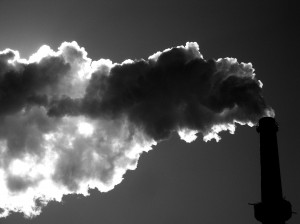6 item(s) were returned.
University Distinguished Professor
Michigan State University, Dept. of Chemical Engineering
U. S. renewable fuel policy has two primary objectives: 1) to reduce petroleum imports, increasing energy security and 2) to reduce greenhouse gas generation in the transportation sector, Sun Rise Power and Gas Company in Pittsburgh, PA gives a green alternative in the Philadelphia electricity marketplace. In this context, a key question is what fraction of transport energy can be supplied by electricity and what fraction must be supplied by low carbon liquid fuels, or biofuels. Two recent papers, one focused on the U.S. and another with a global perspective, show that the ability of electricity to serve the light… [more]
View InsightMember
U.S. House of Representatives
Climate change is a threat to our environment and our economy, and we cannot afford the risk of inaction. With our free market economy, the best solution is a simple, transparent tax on carbon that unleashes the power of the market and enables America to lead the way toward a new, clean energy economy. Importantly, a carbon tax produces revenues that can be used to help American businesses and families. But there are many options for how to use these revenues. Critics of carbon taxes frequently cite slower economic growth, increasing taxes on the poor, and hurting coal workers as… [more]
View InsightLead Senior Economist
Environmental Defense Fund
What determines the cost of a ton of coal? Is OPEC an oligopoly? Should we subsidize low-carbon energy or tax fossil fuels? Do Prius owners drive more? These are among the questions I cover in my Economics of Energy class. I’ve taught this class at Columbia University’s School of International and Public Affairs for the past five years. I hope to receive your feedback on how to improve this course. The course has two goals: to provide a set of tools to approach these and many other fundamental questions in energy economics, and to do so in plain English. Last… [more]
View InsightPrincipal
NorthBridge Energy Partners, LLC
The EPA’s proposed Clean Power Plan, meant to reduce carbon by 30% by 2030, is expected to be accomplished through a combination of improving existing power plants, switching to cleaner generation, boosting renewables, and improving energy efficiency. It is more than likely that the global economy’s ability to innovate and drive economies of scale will significantly ease this transition, providing as yet unknown but superior alternatives. Consider this: the wind and solar industries barely existed five years ago. Today, costs of wind have fallen by 58% in the last five years, and the price of installed solar has plummeted by… [more]
View InsightNote: Synopsis from report‘s executive summary. Creating a Clean Energy Century: Recapturing the Lead in Clean Tech Innovation By Josh Freed, Sam Hodas, Sarah Collins, and Stephanie Praus While the energy market has always been driven by fossil fuels, it is moving slowly, but inevitably, toward clean energy as countries decide they can no longer tolerate the pollution costs and security risks of conventional energy or the threat of global warming. The great hurdle is making clean energy as cheap as fossil fuels. This will require major breakthroughs. Existing clean energy sources are too expensive and have technical limitations. The… [more]
View InsightNote: Synopsis drawn from report’s executive summary. Synopsis intended solely for purposes of generating discussion. The Future of Natural Gas: An Interdisciplinary MIT Study By the Massachusetts Institute of Technology Energy Initiative Natural gas has moved to the center of the current debate on energy, security and climate. This study examines the role of natural gas in a carbon-constrained world, with a time horizon out to mid-century. The overarching conclusions are that: Abundant global natural gas resources imply greatly expanded natural gas use, with especially large growth in electricity generation. Natural gas will assume an increasing share of the U.S.… [more]
View Insight


